U.S. Submarine Docks in Guantanamo Following Russian Naval Presence in Cuba
In a move that's drawn significant attention on the global stage, the U.S. Navy's USS Helena, a nuclear-powered fast attack submarine, made its way into Guantanamo Bay, Cuba. This action comes as a fleet of Russian warships has also gathered in the region, setting the scene for a tense standoff between two powerful nations.
Arrival of the USS Helena
The USS Helena's arrival was marked on Thursday, raising eyebrows and prompting intense scrutiny. This powerful submarine, known for its speed and stealth, entered the waters near the U.S. base just after a Russian naval fleet had docked in Havana Bay. The timing of these movements has sparked a myriad of speculations and concerns. The U.S. Southern Command, however, has described the USS Helena’s presence as part of a 'routine port visit' as it navigates its way through the region.
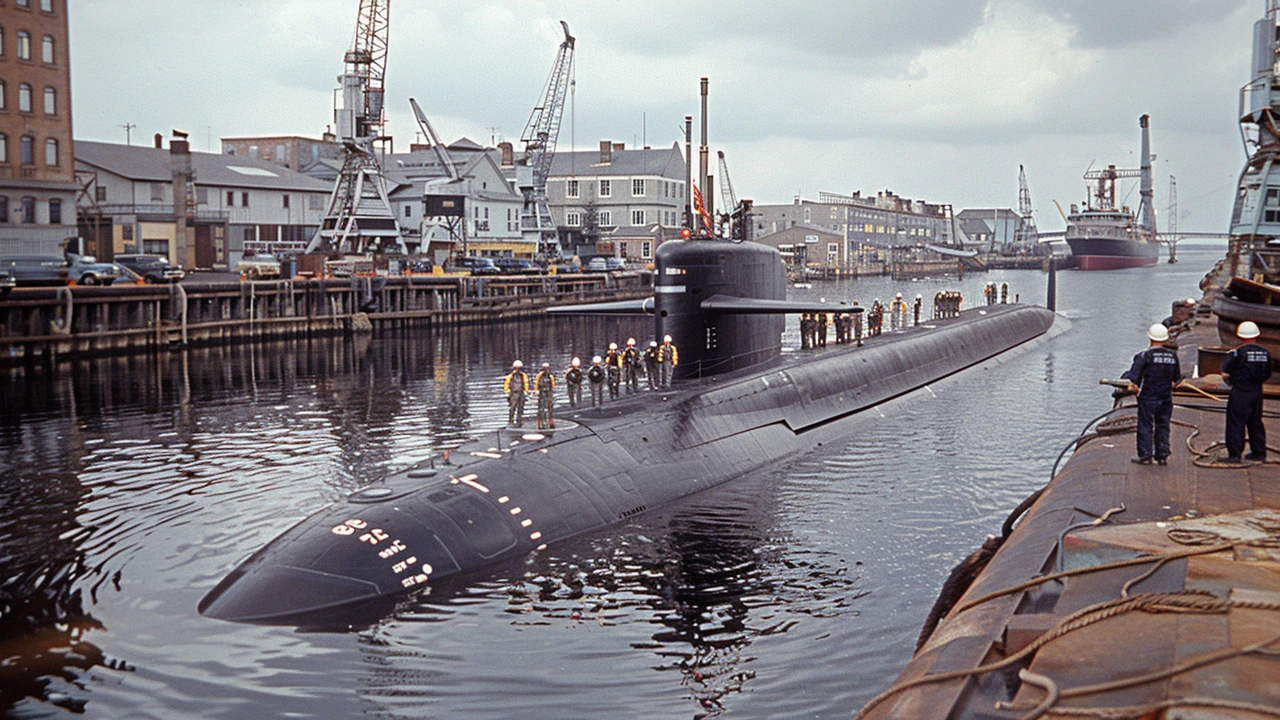
Russian Naval Fleet in Cuba
On the other side, the Russian fleet's composition includes a frigate, a nuclear-powered submarine, an oil tanker, and a rescue tug. These vessels crossed into Havana Bay right after completing their military drills in the Atlantic Ocean. The exercises, planned long in advance, are characteristic of Russia's determined display of military capacity and an assertion of its geopolitical influence.
Monitoring and Responses
In response to the Russian maneuvers, the U.S. Navy and other vessels have been closely monitoring the situation. Pentagon officials have stressed that these drills do not represent an immediate threat to the U.S., despite heightened alertness. Pentagon spokeswoman Sabrina Singh emphasized that the military exercises by Russia were expected and that they pose no direct threat. However, the presence of such a powerful naval fleet so close to U.S. waters is an undisguised flex of military muscle.
Geopolitical Context and Reactions
The timing of these events is particularly notable, coming less than two weeks after President Joe Biden authorized Ukrainian forces to use U.S.-provided weapons against Russia. This move, aiming to protect Kharkiv, has revived old rivalries and escalated tensions. Russian President Vladimir Putin has responded to such actions with a warning that his military could take 'asymmetrical steps' in other parts of the world. This statement casts a long shadow over the current situation and hints at further geopolitical plays.
Historical Alliances and Future Plans
Russia's historical alliances with both Cuba and Venezuela continue to be a significant factor. The presence of Russian warships in the Caribbean is not without precedent, but coupled with current tensions, it paints a complex picture. The Russian military exercises are expected to run through the summer, possibly including visits to Venezuela. Such strategies reaffirm Russia’s commitment to maintaining and showcasing its sphere of influence in the Western Hemisphere.
Implications of the Exercises
As these naval movements proceed, the implications are multifaceted. On one hand, they highlight the strategic posturing by global superpowers; on the other, they underscore the unpredictable nature of military engagements in volatile geopolitical climates. The scenario unfolding in the Caribbean serves as a reminder of the ever-present specter of military confrontation.
As the U.S. and Russia continue their strategic plays, the world watches closely. Each move within the Caribbean waters holds significance far beyond regional boundaries, hinting at broader global ramifications. The USS Helena's visit and the Russian fleet's drills contribute to a delicate balance of power, and the next steps taken by either side could reverberate through international relations for months or even years to come.
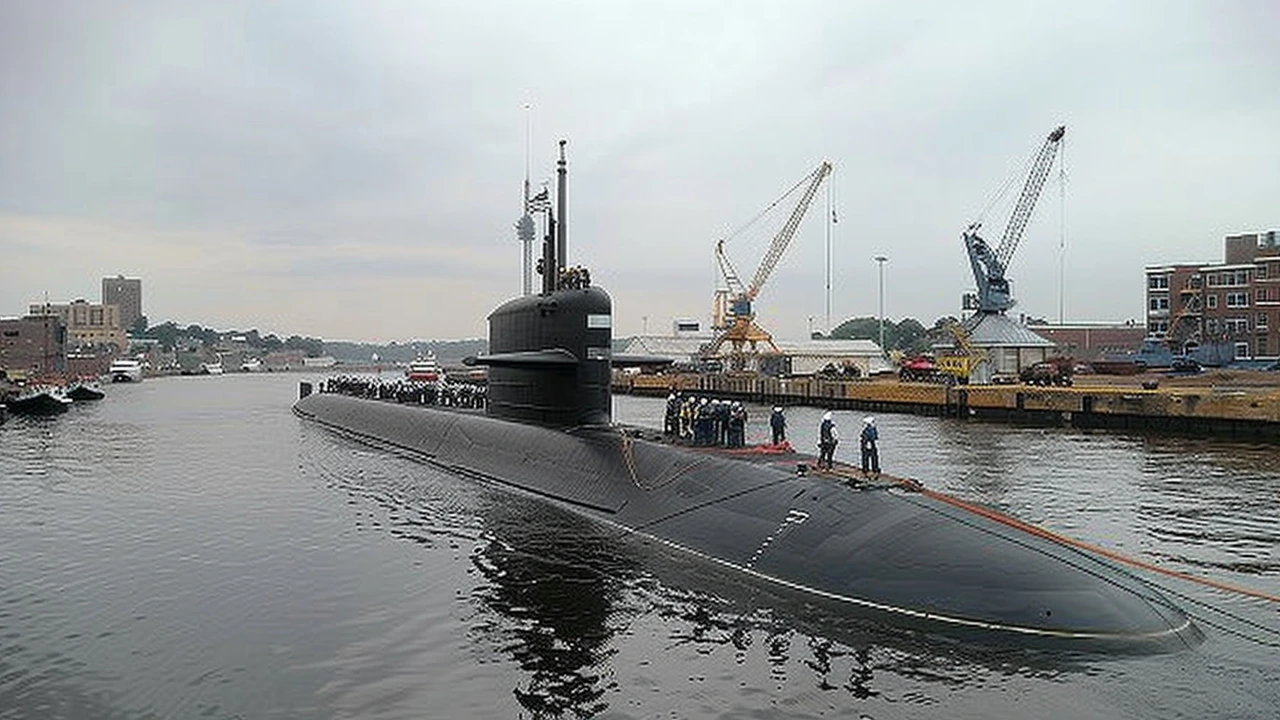
Conclusion: A World On Edge
Ultimately, the arrival of the USS Helena and the concurrent presence of a Russian naval fleet in Cuba signify more than mere military exercises. They represent the continuation of a longstanding geopolitical dance between two powerful nations. With military exercises slated to continue, and potential stops in Venezuelan waters on the horizon, a watchful eye will remain on the Caribbean.
The global community remains keenly attuned to these movements, understanding that what appears as 'routine' or 'expected' can rapidly evolve into critical junctures of international diplomacy and conflict. Navigating these waters requires precise action and diplomacy as the world anticipates the unfolding of this complex, high-stakes game.
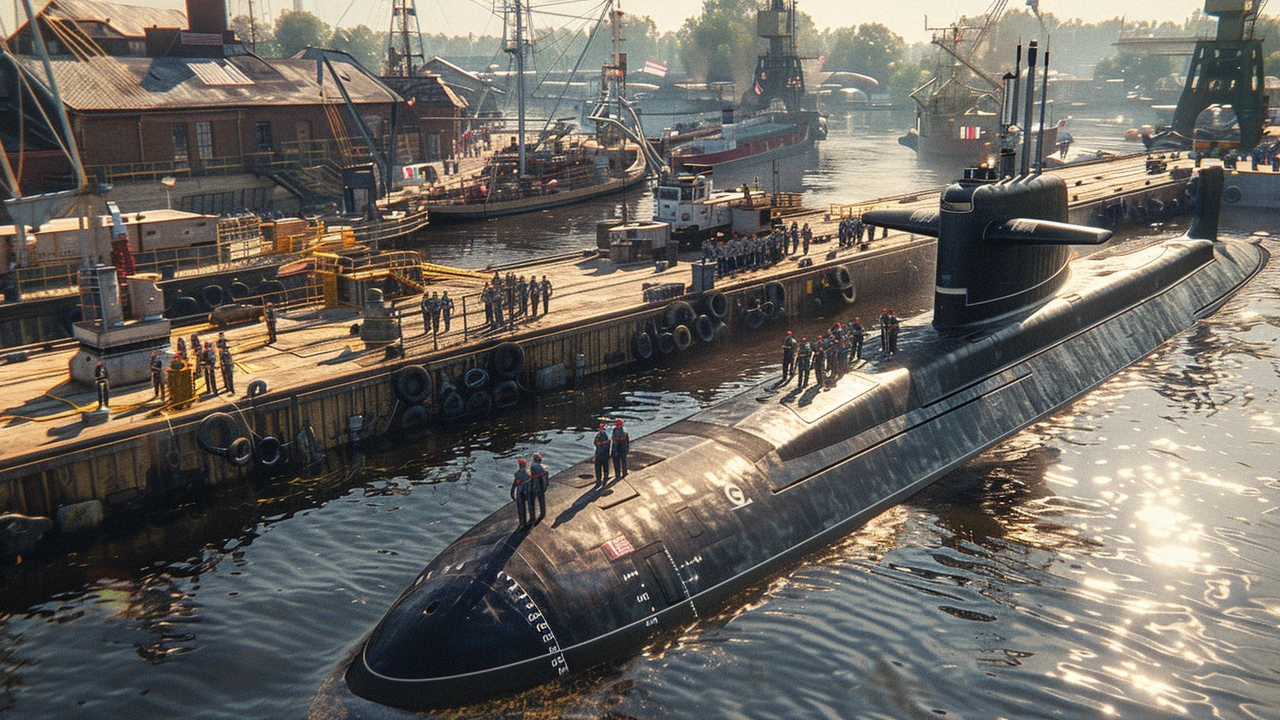

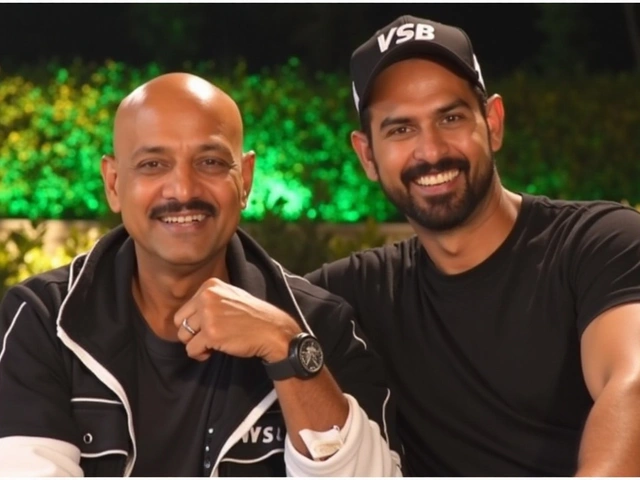
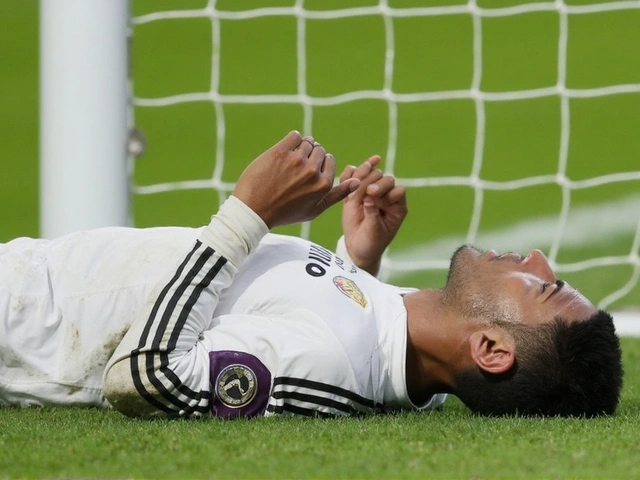
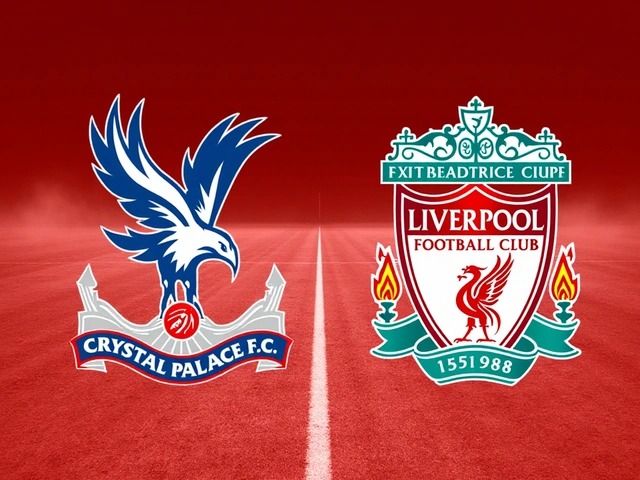


Posts Comments
Chandra Bhushan Maurya June 15, 2024 AT 10:06
This isn't just submarines and warships-it's a silent opera of power, played out in saltwater and silence. The USS Helena slips in like a shadow with teeth, and the Russians? They don't whisper, they *boom*. And we're all just sitting here, sipping chai, pretending this isn't the prelude to something that'll change everything.
Remember when Cuba was just cigars and rum? Now it's a chessboard where the pieces are nuclear-powered and the players don't even look up from their boards.
Ajay Kumar June 15, 2024 AT 17:06
Routine port visit my ass. They've been training for this since the cold war ended. The Russians didn't just drift into Havana-they planted a flag. And the USS Helena? It's not visiting. It's watching. Waiting. The Pentagon says 'no threat' but they're the same people who said the same thing before 9/11 and Iraq. They always say that. Until it's too late.
Saurabh Shrivastav June 16, 2024 AT 04:36
Oh wow. A submarine shows up and suddenly we're all living in a Tom Clancey novel. Meanwhile, my rent went up 40% and my cat still pees on the couch. Can we pivot to something that actually affects us? Like, I dunno, healthcare? Or maybe why my WiFi still dies at 3 AM?
Jaya Savannah June 17, 2024 AT 00:36
so like... the usa sends a sub, russia sends a sub, and we're all just here waiting for someone to drop a nuke in a mojito? 🤡
Hemanth Kumar June 17, 2024 AT 16:10
The strategic calculus of this maneuver is not to be underestimated. The positioning of naval assets within the Caribbean basin constitutes a reassertion of asymmetric deterrence, predicated upon the historical precedent of proximate power projection. The United States, by deploying a fast-attack submarine, signals not merely operational readiness, but a reaffirmation of maritime dominance in a region historically susceptible to external influence. The Russian fleet, by contrast, embodies a declarative assertion of multipolarity.
kunal duggal June 19, 2024 AT 05:04
This is textbook deterrence theory in action-subsurface mobility as a second-strike enabler, combined with forward-deployed power projection. The Russian fleet’s composition-especially the nuclear sub and oil tanker-suggests a logistics-enabled extended presence. The U.S. response is calibrated: not escalatory, but visibly responsive. This isn't war. It's signaling architecture. The real question is whether the next move is diplomatic or kinetic.
Steven Gill June 19, 2024 AT 10:14
I don't know why we're so surprised. People forget that Cuba's been a mirror for global power plays since the 50s. The U.S. used to own it. Then Russia leaned in. Now it's just... a place where big boys come to flex. But honestly? I think the real story is the Cuban people. They've been watching this dance for 60 years. They didn't ask for any of it. We're all just noise to them.
Vikas Yadav June 21, 2024 AT 01:43
I just... I don't understand why we can't all just sit down and talk. Like, seriously. There are people on both sides who just want to live, to eat, to raise their kids. Why does every single time someone moves a ship, we assume it's the start of war? Why can't we just... ask? Why does everything have to be a threat?
रमेश कुमार सिंह June 22, 2024 AT 15:15
You know what’s wild? The ocean doesn’t care who flies what flag. It’s been here longer than empires, and it’ll outlive every submarine, every frigate, every politician who thinks they’re steering the tide. These ships? They’re just bubbles on the surface. The real power? The quiet. The stillness. The fact that, for now, no one’s pulled the trigger. That’s the miracle. Not the hardware. The restraint.
Krishna A June 23, 2024 AT 16:43
You think this is about Cuba? Nah. They're using Cuba as bait. The real target is Florida. The sub's not there to 'visit.' It's there to map the coastal defenses. And the Russians? They're not just drilling-they're planting listening devices on the seabed. You think the oil tanker's just for fuel? It's a data relay. They've already got microphones on the seabed near Miami. You're being watched. Always.
Amar Yasser June 24, 2024 AT 09:20
Man, I just hope nobody panics. We’ve been here before. The world spins, big guys play their games, and somehow, we still get coffee in the morning. Maybe it’s dumb, but I choose to believe in the quiet majority-the ones who don’t want war, who just want to live. Let’s not let the noise drown that out.
Ankush Gawale June 25, 2024 AT 13:29
I think we need to remember that these aren’t just machines or flags-they’re people behind them. Sailors who miss their families. Engineers who just want to fix things. Politicians who got promoted for being loud. Maybe if we saw them as humans first, not threats, we’d stop turning every ship into a war cry.
Sandhya Agrawal June 25, 2024 AT 22:46
They're not just drilling in Cuba. They're testing the U.S. response time. The sub in Havana? It's a decoy. The real one is already inside the Gulf. They've mapped every current, every sonar blind spot. This isn't about power. It's about infiltration. And the U.S. is too busy pretending it's a 'routine visit' to notice the ghosts in the water.
Write a comment